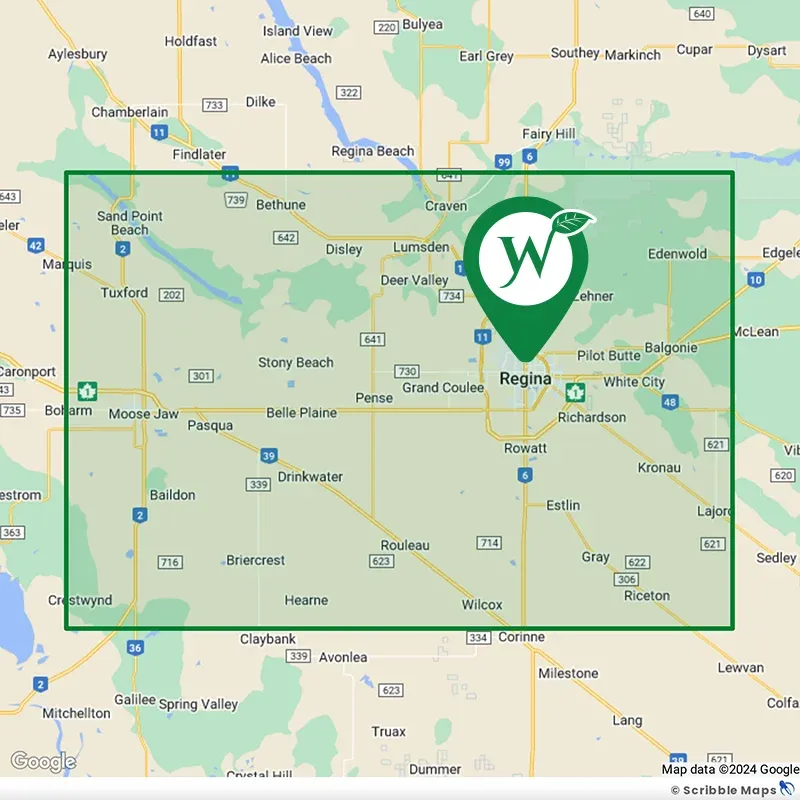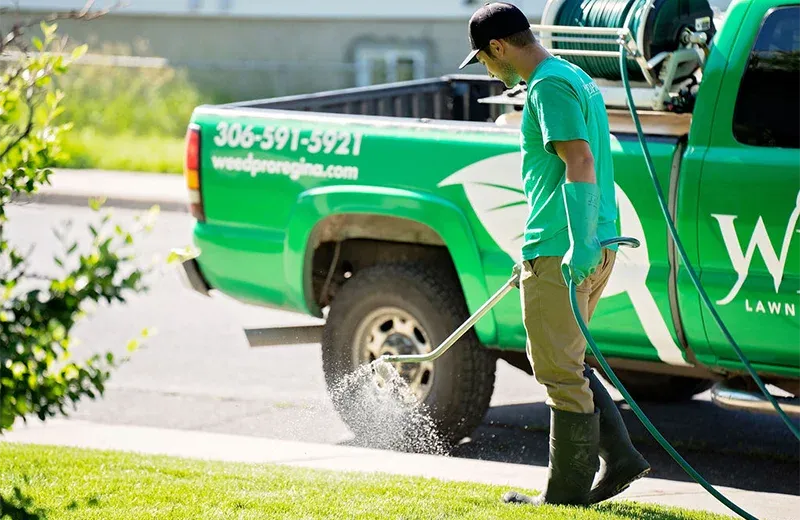Lawn Care Services in Saskatchewan
At Weed Pro we understand that a well-maintained lawn enhances the beauty of your home and adds value to your property. Our comprehensive lawn care packages ensure your lawn gets what it needs to be lush and green. Unlike other companies that offer the basics with optional extras, we include everything you need for optimal lawn health from the very start, all season long, and for less.
Our Lawn Care Process
Our lawn care process is designed to provide seamless, efficient, and thorough care for your lawn. From the initial setup to regular maintenance visits, we ensure your lawn remains healthy and well-maintained throughout the growing season.
When you fill out a quote request or call our office, you can expect the following:
- Our team will help assess your lawn’s needs
- We’ll set up a lawn care package tailored to those needs
- We will ask about any special requests you may have
- We take the time to answer any questions you may have on how to have a great lawn
- We will set up your preferred payment method
- We ensure everything is set up properly for seamless service delivery
Here's What Our First Visit Looks Like
- A prenotification email is sent a day or two in advance.
- We arrive at your home, knock on the door, announce our presence, and discuss any areas of concern with you.
- We take photos of your lawn to keep a continuous reference of its condition.
- We spread fertilizer to nourish your lawn and start the process of growing a healthier lawn.
- We apply weed control treatments, including soil booster and chinch bug control, to keep your lawn healthy.
- Using leaf blowers, we clean up any fertilizer that has spread beyond the lawn areato ensure your yard stays tidy.
- We walk around your yard with a backpack sprayer and spot-spray any weeds in non-lawn areas.
- We will text you when our work is completed and send you a picture of us closing your gate.
And these steps don't just stop after the first visit. This is repeated three times throughout the year to ensure your lawn remains in peak condition!
Weed Control
We take pride in our effective weed control solutions, ensuring your lawn remains healthy and free from unwanted weeds. As licensed professionals, we are trained to use professional-grade pesticides safely and correctly. Our detailed approach includes precise mixing of weed control products and application of the right amount using calibrated equipment tailored to your lawn's needs. Our Fertilizer & Weed Control Packages are designed to deliver exceptional results. We tackle weed infestations efficiently, targeting unwanted plants while promoting the health and vitality of your grass.
Fertilizer
At Weed Pro, we prioritize the health and vitality of your lawn with our advanced fertilizer treatments. We use a high-quality synthetic fertilizer enriched with a micronutrient package, providing more than the basic N-P-K (Nitrogen, Phosphorus, Potassium) diet found in standard fertilizers. This blend ensures your lawn receives comprehensive nutrition for robust growth and vibrant color.
Our fertilizer formulation is designed for optimal nutrient release. Upon application, 25% of the nutrients are released within the first week, while the remaining 75% is gradually released over 8 to 10 weeks. This staggered release schedule ensures continuous feeding throughout the summer, promoting sustained health and vigor in your lawn.
Soil Booster
We go beyond basic lawn care with soil booster treatments included in every package. While other providers may charge $50-75 per application, if offered at all, we include three applications of our soil booster as part of our commitment to enhancing your lawn's health and beauty.
Our Soil Booster enriches your soil with essential vitamins and minerals, improving soil structure and enhancing nutrient absorption by grass plants. By optimizing soil health, we ensure that your lawn can efficiently utilize fertilizer and water, promoting vigorous growth and resilience against environmental stressors.
Chinch Bug Control
Areas We Service
Weed Pro is locally operated in Regina and offers its lawn care services to the surrounding areas.



